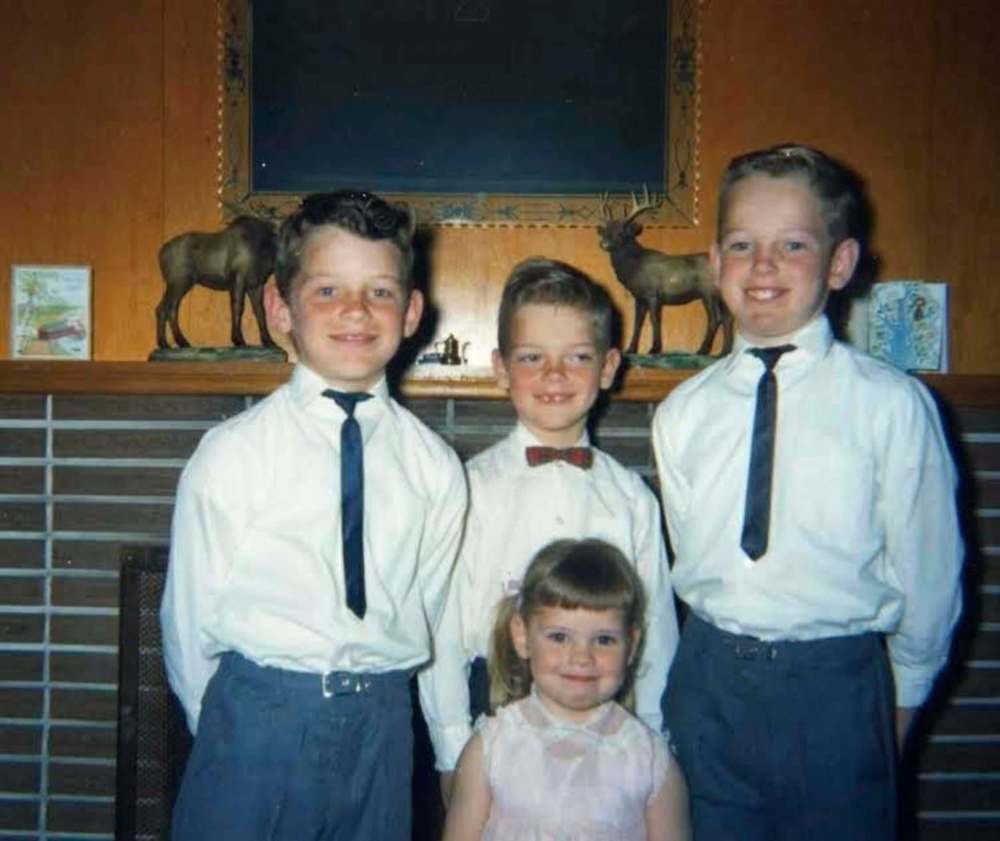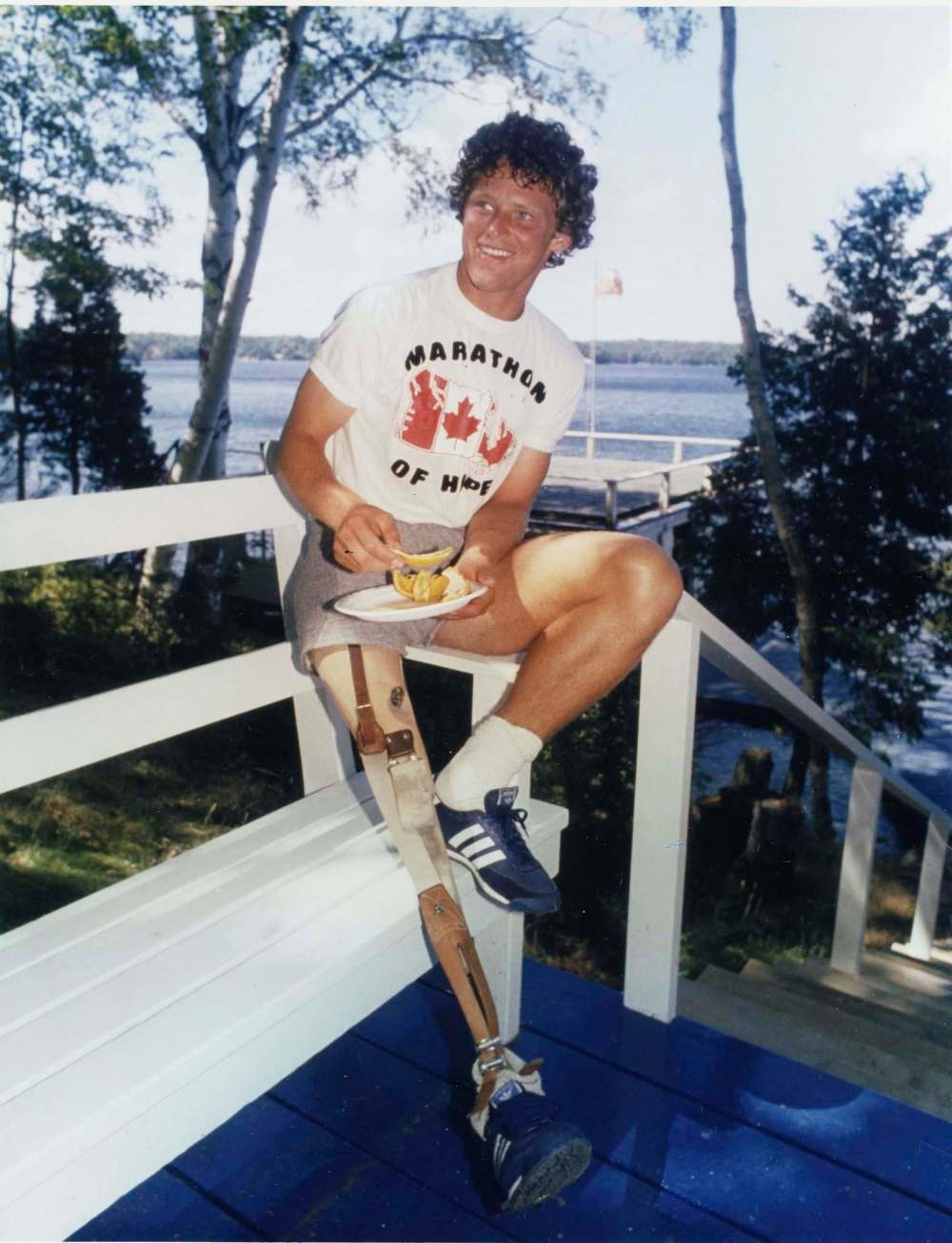Terry Fox’s Red River roots run deep
Iconic humanitarian's family embraces lost Métis heritage
Advertisement
Read this article for free:
or
Already have an account? Log in here »
To continue reading, please subscribe:
Monthly Digital Subscription
$1 per week for 24 weeks*
- Enjoy unlimited reading on winnipegfreepress.com
- Read the E-Edition, our digital replica newspaper
- Access News Break, our award-winning app
- Play interactive puzzles
*Billed as $4.00 plus GST every four weeks. After 24 weeks, price increases to the regular rate of $19.00 plus GST every four weeks. Offer available to new and qualified returning subscribers only. Cancel any time.
Monthly Digital Subscription
$4.75/week*
- Enjoy unlimited reading on winnipegfreepress.com
- Read the E-Edition, our digital replica newspaper
- Access News Break, our award-winning app
- Play interactive puzzles
*Billed as $19 plus GST every four weeks. Cancel any time.
To continue reading, please subscribe:
Add Winnipeg Free Press access to your Brandon Sun subscription for only
$1 for the first 4 weeks*
*$1 will be added to your next bill. After your 4 weeks access is complete your rate will increase by $0.00 a X percent off the regular rate.
Read unlimited articles for free today:
or
Already have an account? Log in here »
Hey there, time traveller!
This article was published 08/01/2018 (2825 days ago), so information in it may no longer be current.
Terry Fox had deeper roots in Manitoba than anyone realized.
The family of the Canadian humanitarian — who died in 1981 without being able to complete his Marathon of Hope cross-Canada cancer research fundraiser — led by the persistence of some extended cousins, have recently uncovered that lost heritage, which includes ancestors who were buffalo hunters and those who helped lead the charge for Métis rights.
Darrell Fox (Terry’s brother) and his daughter, Alexandra, are now proud members of the Métis Nation in British Columbia. Last weekend, Fox and his cousin, Carrie Shaw, went national with their family story.

Fox told the Free Press Monday the family didn’t know about their native roots and Terry probably never realized their beloved grandmother, Marian (Gladue) Wark, had Métis heritage because she never talked about it.
“I know, it’s amazing. We all come from somewhere. We know that. On the Fox side, there’s German, European, British and so on. But to know we have native blood as well? That’s very exciting,” Fox said from his home in Chilliwack, B.C.
He credits his cousins on his mother’s side, many of whom live in Manitoba, for picking up on vague family rumours and running them down with the help of the Métis Nation.
The Winnipeg-born Terry Fox was a Canadian hero.
In 1980, the young runner was forced to halt his Marathon of Hope run across country after the cancer that took his right leg spread to his lungs. He’d made it from Newfoundland to Thunder Bay, Ont., on one leg, his grit and his signature hop-along stride, earning him the admiration of Canadians coast to coast.
He died in June 1981, at the age of 22, but his lasting legacy — the annual Terry Fox Run charity — continues to raise millions each year for cancer research.
The Manitoba Métis Federation (MMF) said it is delighted the family has discovered and embraced its Red River Métis heritage, but it is something it had known about for a long time.
“We knew that,” MMF president David Chartrand said simply.
The Manitoba Museum also knew about Terry Fox’s Métis heritage. In fact, the museum was likely the first to cite the link as part of an exhibit on Terry Fox a couple of years ago, in a supplemental exhibit to a national tribute mounted by the Canadian Museum of History.
“Through our discussions (with the family), it came out that Terry Fox’s mother’s side of the family had Métis heritage,” said Roland Sawatzky, the Manitoba Museum’s curator of history. “We talked about that and we said, ‘Let’s put that in the exhibit.’ So we did.”
The MMF was little more low-key, Chartrand said by phone Monday.
“The family approached (Métis Nation B.C.) some time ago on identifying they were Métis. “Once we found out he was (Métis), we decided to lay low on the profile.”
Holding off was a matter of respect for Terry Fox’s legacy and a sense it was up to his family to claim his roots, not the other way around, Chartrand said.
“Terry Fox did an amazing thing for Canada and for cancer fighters, and it was important to recognize that and not get lost in the identity issue,” he said. “Now that it’s out in the open, and the family is so proud of it, we embrace them strongly. This is something we’re proud of.”
Fox’s struggle with cancer and his heroic effort to help combat the illness will now also help fuel the spirit of resilience for the Manitoba Métis, Chartrand said. “Now we can say, ‘Damn right, he had to have been Métis because he was so tough. He embraced all that pain, all that struggle. Our people take whatever comes our way. We fight and we keep on going.”

The family’s Métis heritage can be traced through Terry Fox’s mother, Betty Fox. Her mother was Marian (Gladue) Wark, and through her, the Fox ancestry goes back to the early and mid-1800s, to the Gladue, Dubois, Poitras and Grant families at St. Norbert on the Red River and St. François Xavier.
“Those were the big families that led the charge on protecting Métis families, Métis lands, Métis customs and Métis harvest hunting. Cuthbert Grant was our most famous of all,” Chartrand said.
At the same time, hiding Métis roots was something many families did just to survive, and no one thought twice about Marian Wark’s decision, Chartrand said.
“You can’t blame her… the Métis were traumatized… they called it a reign of terror after 1870, against the Métis people and that lingered into the early 1900s… And if you look at the history, we disappear for a time frame, after the execution of Louis Riel in 1885. It was the veterans after the Second World War who raised the profile of the Métis people,” Chartrand said.
A couple of years after Wark married in 1928, an entire Manitoba Métis community was burned to the ground, its church, school and homes torched after a local government decision to turn the land into pasture for cattle. Ste. Madeleine remains a stain on the Métis memory to this day and its location northwest of Brandon is very nearly a Métis pilgrimage site.
South of Brandon, in the Melita and Boissevain area, is where Wark started her family.
“Métis were treated like animals. You can’t blame Mrs. Gladue,” Chartrand said (using Terry Fox’s grandmother’s maiden name). “We knew what our people endured. We knew they had to hide their identity.”
Darrell Fox said that as he’s aged, he’s grown to appreciate the complexities of nature and nurture.
“As you get a little dated, you want to know your history, who you are, where you’re from and why you think and act the way you do. I think it’s related to our origins and our ancestry, as well. And to think of it, the mid-1800s is not that long ago. We were out there, hunting buffalo. That’s pretty cool,” he said Monday.
“I think it explains, a little bit, about Terry’s personality. His drive. And hard work. That’s always been there in our family.”
alexandra.paul@freepress.mb.ca


